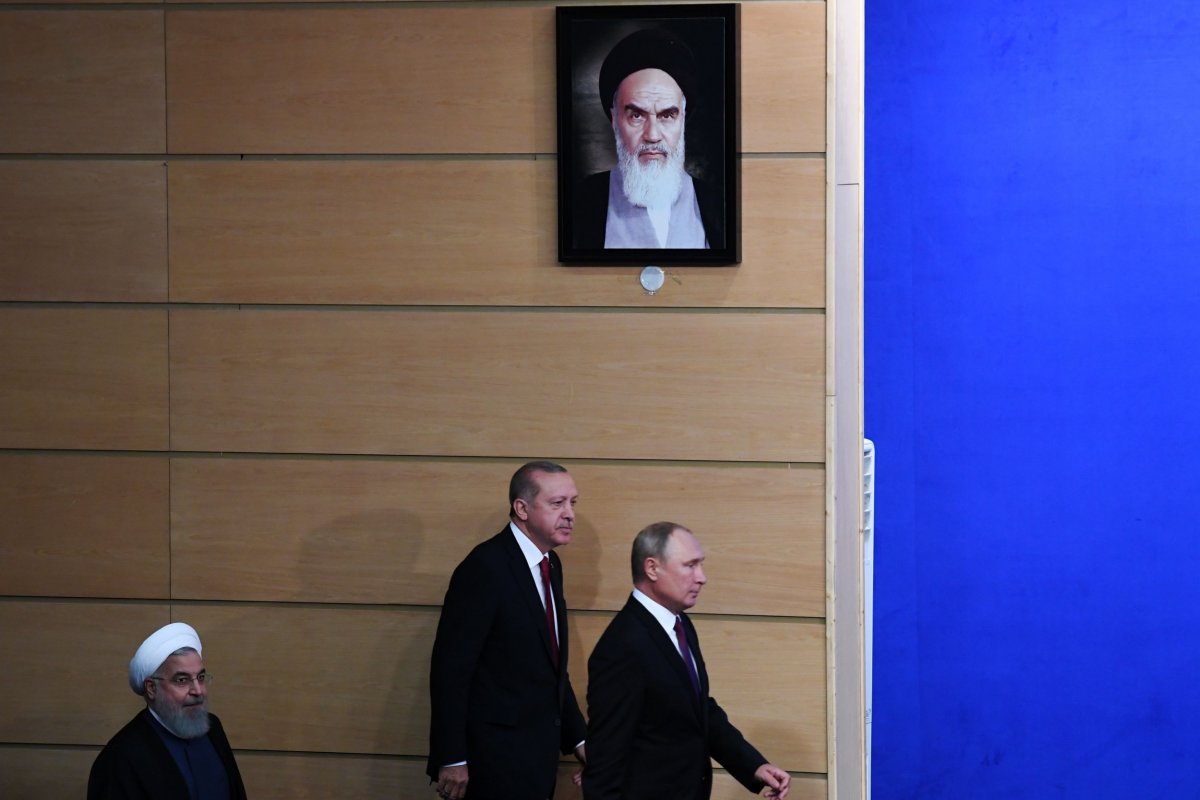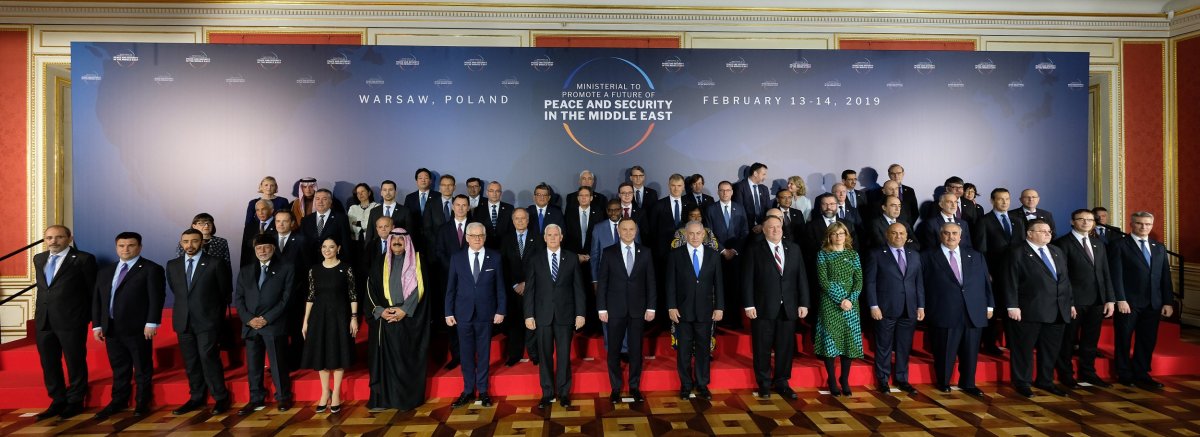Russia was set to host a trilateral summit involving Iran, just as the United States was holding a separate conference designed to rally global allies against the revolutionary Shiite Muslim power.
The U.S. and Poland launched a two-day international gathering Wednesday officially designed "to promote a future of peace and security in the Middle East," but the meeting was widely seen as a venue for President Donald Trump's administration, Israel and Saudi Arabia to drum up European and Arab support to further press their common foe of Iran. Representatives from Tehran were not invited to the event.
As the anti-Iran conference reached its second day in Warsaw, Iranian President Hassan Rouhani joined Russian President Vladimir Putin and Turkish President Recep Tayyip Erdogan one thousand miles away in the Black Sea city of Sochi, for the latest meeting Thursday of three major powers attempting to resolve the long-running Syrian conflict.
In a statement published Monday, the Kremlin said that "further joint steps with a view to a long-term settlement in the Syrian Arab Republic are expected to be discussed." Putin was also anticipated to hold separate meetings with Rouhani and Erdogan.

Iran has been at odds with the U.S. and a number of other Western countries since the 1979 Islamic Revolution that deposed a West-backed monarch and saw a clerical Shiite Muslim leadership take over. As Tehran celebrated the 40th anniversary of the uprising, this feud worsened in the wake of new, strict sanctions due to Trump's decision to leave a 2015 nuclear deal still supported by China, Russia and the European Union.
The White House abandoned the deal, struck under former President Barack Obama, after accusing Iran of using unfrozen assets to fund a ballistic missile program and militant groups abroad, including in places like Lebanon, Iraq and Syria—where Shiite Muslim militias have supported government offensives against largely Sunni Muslim insurgencies. Groups such as Al-Qaeda and, later, the Islamic State militant group (ISIS) took hold in the region after the 2003 U.S. invasion of Iraq, spreading to Libya and Syria in 2011 after uprisings also backed by Washington and its allies.
Though the U.S. and Iran have both contributed to the fight against ISIS in Iraq and Syria, they have opposed one another's presence in the neighboring Arab states, and elsewhere in the Middle East. In 2015, a year after the Pentagon gathered a coalition to battle ISIS and the same year the U.S. teamed up with a mostly Kurdish force to replace rebel groups as its primary ground partner in Syria, Russia intervened in favor of Assad.
The Syrian government has since gradually reclaimed most of the country, leaving the U.S.-backed Syrian Democratic Forces with roughly a third of the territory, and one northwestern province in the hands of the Islamist-led insurgency. Turkey, the last major power backing the Syrian opposition, has negotiated a ceasefire agreement with Russia to prevent the Syrian armed forces from storming Idlib, and Erdogan has sought to cut a separate deal with Trump to allow Turkish allies to occupy northern Syrian regions currently held by U.S.-backed Kurdish groups considered terrorist organizations by Ankara due to their alleged ties to banned separatists at home.

Russia and Iran, the only foreign powers recognized by Syria as having a legitimate presence in the country, have also called on the U.S. to withdraw, something Trump announced in December that he would do as the final ISIS pocket in eastern Syria collapsed. The impending U.S. exit has accelerated talks between the Syrian Democratic Forces and the Syrian government, and has inspired Arab League states to being mending their own ties to Damascus in hopes of checking Tehran's clout.
The U.S. was set to use the ongoing Warsaw conference to solidify an Arab coalition against Iran, and Israeli Prime Minister Benjamin Netanyahu vowed his country would overcome decades of hostility with the Arab world "to advance the common interest of war with Iran." (The phrase was later alternatively translated as "combating Iran" by the Israeli leader's office.) Frustrated by Israel's increasingly public and deadly campaign against suspected Iranian and Iran-backed targets in Syria, officials in Tehran have threatened death and destruction in Israel.
Moscow, too, has grown more critical of Israeli strikes in Syria ahead of a planned meeting between Putin and Netanyahu next week. Russia declined an invitation to the Warsaw event, as did Algeria, the E.U., Lebanon, the Palestinian National Authority, Iraq, Qatar and Turkey.
Uncommon Knowledge
Newsweek is committed to challenging conventional wisdom and finding connections in the search for common ground.
Newsweek is committed to challenging conventional wisdom and finding connections in the search for common ground.
About the writer
Based in his hometown of Staten Island, New York City, Tom O'Connor is an award-winning Senior Writer of Foreign Policy ... Read more
To read how Newsweek uses AI as a newsroom tool, Click here.








